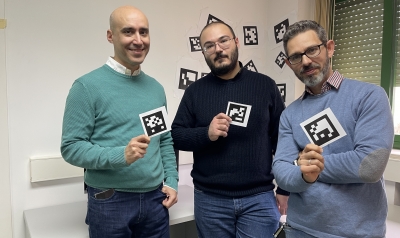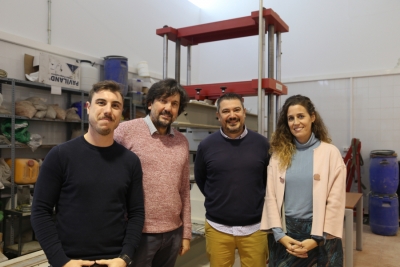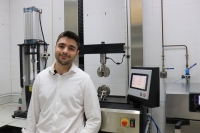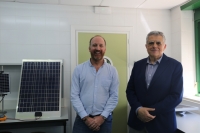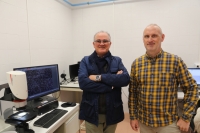A model developed by the University of Cordoba uses neural networks to optimize the decoding of markers used by machines to detect and ascertain the location of objects
The formula to reduce the carbon footprints of roads: waste, nanomaterials and less lime in the bases
Escrito por UCC+iA team at the University of Cordoba has designed a technique to stabilize soils in road bases using industrial waste and nanomaterials, reducing the use of lime by 66%, cutting the carbon footprint of the road in half, and improving its properties
A new method predicts the shelf life of strawberries in real time
Escrito por UCC+iBased on non-invasive technology, a research group at the University of Cordoba has created a tool to guarantee optimal strawberry quality and minimize food waste
Avocado Pruning Residues Used to Produce More Sustainable Food Packaging
Escrito por UCC+iA new study manages to produce a prototype of a more durable material that increases the biodegradability of food packaging, partially replacing its bioplastic with cellulose fibers extracted from the branches and leaves of the avocado tree
A model estimates the cultivable space at photovoltaic plants, to combine agricultural and photovoltaic production
Escrito por UCC+iA team at the University of Cordoba has developed a methodology that defines the cultivable space between two-axis photovoltaic modules, with the aim of promoting the conversion of existing plants over to agrivoltaic production
The technological challenge of non-stick pans: Teflon is still more effective than other coatings
Escrito por UCC+iA protocol designed by the University of Cordoba yields a simple and robust evaluation of the efficiency and durability of different commercial non-stick coatings used for food preparation


